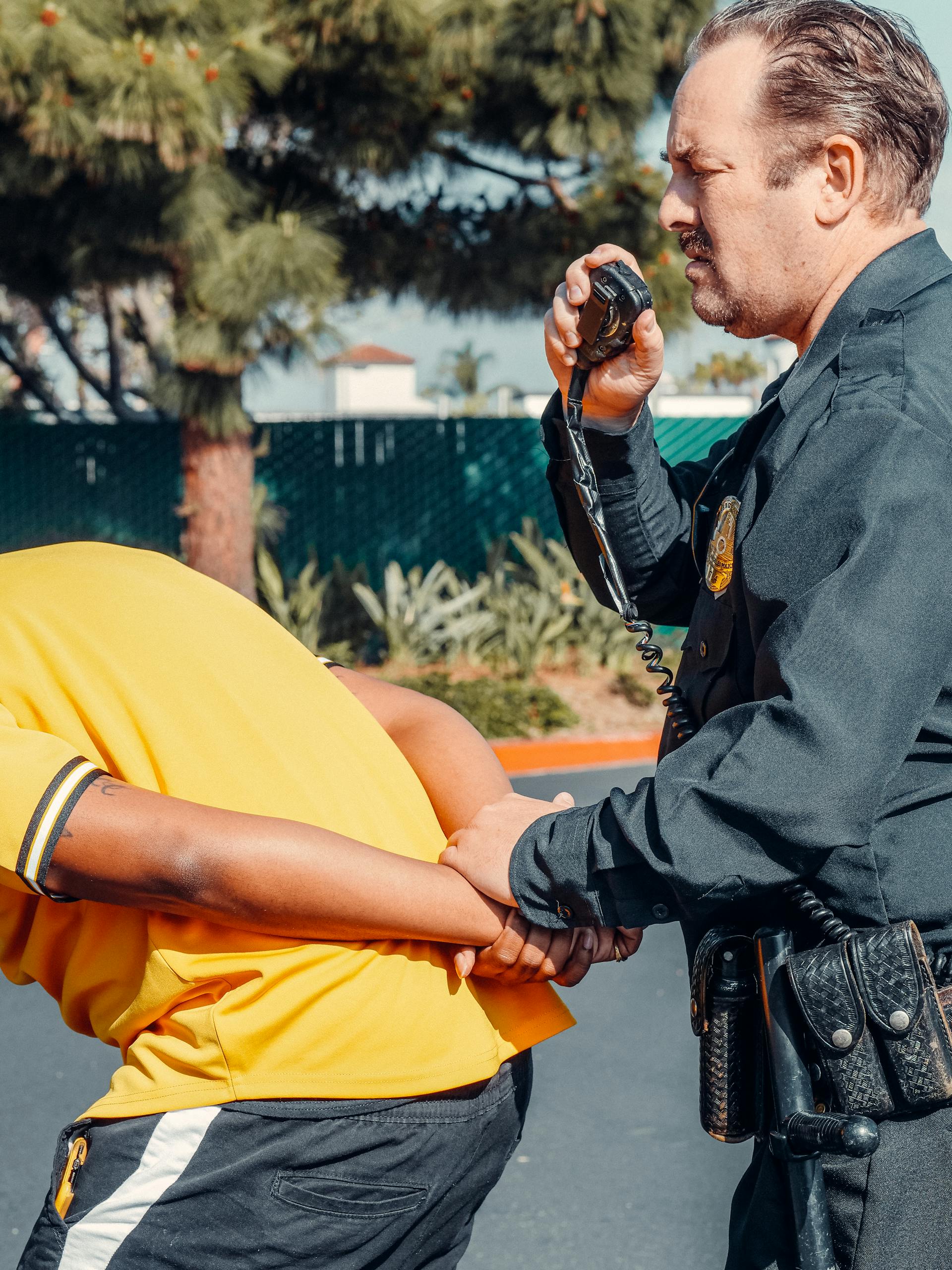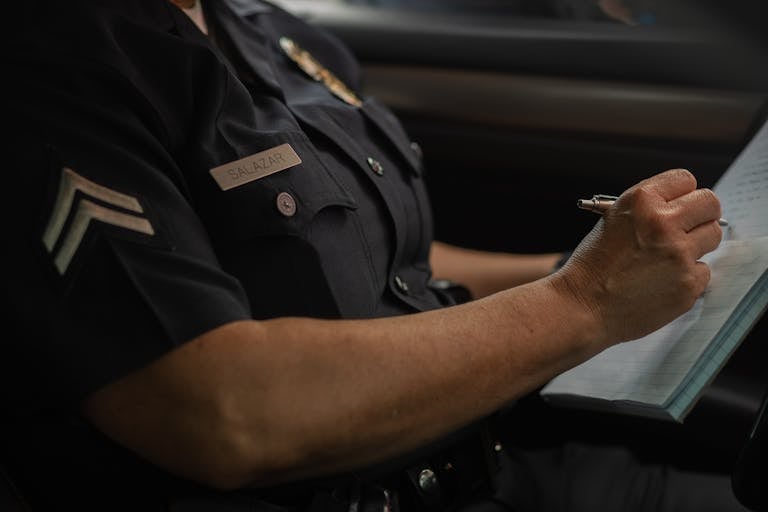10 Common Probation Violations (and How You Can Avoid Them)
In the criminal justice system, Probation is a punishment that gives someone a chance to rehabilitate and reintegrate into society without serving time in jail or prison. In essence, you are on “adult supervision”.
However, managing the terms of your adult probation supervision can be very challenging (as it’s littered with booby traps and landmines), and violations can have serious consequences.
This list outlines the most common probation violations, gives some real-life examples, and offers practical advice on how to avoid them, ensuring you complete your probation period successfully.
1. Failing to Report to Your Probation Officer
One of the most frequent violations is failing to report to your assigned probation officer as scheduled.
Real-Life Example: John was placed on probation for a DUI offense. He was required to go to the probation office and meet with his assigned probation officer on the first Monday of each month. One month later, John’s car broke down on the morning of his scheduled meeting. Instead of calling his probation officer immediately, he decided to skip the meeting and explain later. This resulted in a violation of his probation terms (with a possible probation revocation).
How to Avoid Probation Violation:
- Mark all appointments in your calendar
- Set multiple reminders on your phone (there are specific apps you can use for this)
- Prioritize these meetings over anything else, and how important it is to make it over to the probation offices
- If you absolutely cannot make a probation meeting with probation officers, contact your probation/parole officer immediately to reschedule
2. Failing Drug Tests
Many probation and parole terms include regular drug testing, and failing these tests is a common violation.
Real-Life Example: Sarah was on court-ordered supervision for a drug-related offense, and part of her probation condition was to undergo random drug tests. At a friend’s party, she decided to have “just one” alcoholic drink, thinking it wouldn’t show up on a drug test. However, she was called into the probation department for a random test the next day and tested positive for alcohol, violating her probation terms.
How to Avoid Probation Violation:
- Abstain completely from illegal drugs and alcohol if required (especially while on felony probation)
- Be aware of substances that can cause false positives (e.g., certain medications or foods)
- Inform your probation officer of any prescription medications you’re taking
- Seek help for substance abuse issues through approved programs (there are many community services that offer such)
3. Associating with Known Criminals
Probation often prohibits contact with individuals who have criminal records or are involved in illegal activities, as this compromises the very terms set forth when on supervised release.
Real-Life Example: Mike was on probation for theft. He ran into an old friend at a gas station who invited him to a party. Mike knew this friend had a criminal record but thought a brief interaction wouldn’t hurt. At the party, local law enforcement arrived due to a noise complaint and found Mike in the company of several individuals with criminal records, thus violating his probation terms.
(And while this may also seem extremely unfair, is unfortunately a reality of our beautiful criminal justice system. Please note attempted sarcasm)
How to Avoid Probation Violation:
- Cut ties with friends or acquaintances involved in known criminal activities
- Be cautious about new relationships and verify backgrounds if necessary
- Focus on building positive friendships with law-abiding citizens
- Participate in support groups or community organizations that promote positive lifestyle changes
4. Leaving the Jurisdiction Without Permission
Traveling outside your assigned jurisdiction without approval is a violation of most probation supervision terms.
Real-Life Example: Lisa was on community supervision (probation) in Los Angeles County. Her sister in San Diego was having a baby, and Lisa decided to drive down for a quick visit without informing her probation officer. On her way back, she was pulled over for speeding, and the officer discovered she was a probationer who had left her jurisdiction without permission, resulting in a probation violation.
How to Avoid Probation Violation:
- Understand the exact boundaries of your court-ordered jurisdiction
- Always request permission well in advance for any travel (travel pass)
- Provide detailed travel plans to your assigned probation officers
- Wait for explicit approval before making any travel arrangements
5. Possessing Firearms or Other Weapons
A Probationer is typically prohibited from owning or possessing any firearms or weapons.
Real-Life Example: Tom was on felony probation for a non-violent offense. His father passed away, leaving him a collection of hunting rifles. Tom decided to keep them locked in a safe at home, thinking this would be okay since he wasn’t using them. During a routine home visit, his probation officer discovered the firearms, resulting in a probation violation.
How to Avoid Probation Violation:
- Remove all the weapons from your home and vehicle
- Avoid situations where any weapons might be present
- Do not handle firearms or weapons, even temporarily as could potentially compromise the terms of your supervised release (and you never know who or what happens around you)
- Be aware that some items (like certain knives) may be considered weapons
6. Failing to Maintain Employment or Attend School
Many probation terms require maintaining employment or attending school.
Real-Life Example: David was required to maintain steady employment as his conditions of probation. He got a job at a local warehouse but found the work challenging. After a few weeks, he stopped showing up without informing his probation officer or seeking new employment. This lack of communication and failure to maintain employment resulted in a probation violation.
How to Avoid Probation Violation:
- Actively seek and maintain employment
- If unemployed, document your job search efforts (use job search logs)
- Consider enrolling in educational programs if employment is hard to find
- Communicate regularly with your probation officer about your employment status
7. Missing Court-Ordered Programs or Community Service
Failing to attend required programs or complete community service hours is a common violation.
Real-Life Example: As a probationer, Emily was ordered to complete 100 hours of community service within six months. She procrastinated, thinking she had plenty of time. In the final month, she realized she still had 60 hours to complete. Unable to fit all the hours into her schedule, she failed to complete the required service on time, violating her conditions of probation.
How to Avoid Probation Violation:
- Keep a detailed schedule of all required community service programs and hours worked
- Start completing hours early to avoid last-minute rushes
- Document all completed hours and have them verified
- If you’re struggling to complete hours, communicate with your probation officer about alternatives or extensions
8. Failing to Pay Fines or Victim Restitution
Not meeting financial obligations related to your probation can lead to violations.
Real-Life Example: Mark was required to pay $200 per month in restitution. He lost his job and started falling behind on payments. Instead of communicating with his probation officer about his financial difficulties, he simply stopped paying, hoping to catch up later. After three months of missed payments, he was found in violation of his probation terms.
How to Avoid Probation Violation:
- Create a budget that prioritizes probation-related payments
- If you’re struggling financially, communicate with your probation officer about payment plans
- Consider seeking additional employment or financial counseling
- Keep records of all payments made
9. Committing New Crimes
Any new criminal offense, no matter how minor, is a serious probation violation.
Real-Life Example: Rachel was on probation for a misdemeanor offense. While shopping, she impulsively decided to shoplift something small. She was caught by store security, and the police were called. Even though the new offense was minor, it constituted a violation of her probation terms.
How to Avoid Probation Violation:
- Strictly adhere to all laws and regulations (do not break the law, especially if you are currently on a supervision program)
- Avoid situations that could lead to legal trouble
- Be mindful of your actions and their potential consequences
- If accused of a new offense, contact your probation officer and seek legal counsel immediately
10. Violating Curfew or Electronic Monitoring Rules
For those with curfews or electronic monitoring, violating these terms is a common issue.
Real-Life Example: Alex had a 10 PM curfew as part of his probation terms. One night, he lost track of time while out with friends. Realizing he was going to be late, he sped home, arriving at 10:15 PM. Despite the short delay, this still counted as a curfew violation, thus causing him to violate probation.
How to Avoid Probation Violation:
- Understand your curfew hours clearly
- Plan your schedule ahead to ensure you’re home well before curfew
- Maintain your electronic monitoring equipment properly
- If there’s an emergency that may cause a violation, communicate with your probation officer immediately
Conclusion
Probation is a very unsavory experience (it sucks), but is an opportunity for a fresh start to move on with your life. Completing probation requires diligence, responsibility, and a commitment to following the rules set forth.
By understanding the common violations in this post (recognizing how they can “just happen” in everyday life situations), and actively working to avoid them, you can significantly increase your chances of completing your probation period.
Remember, open communication with your probation officer is key. If you’re struggling with any aspect of your probation, don’t hesitate to seek guidance or counsel. Your probation officer can often provide resources or adjustments to help you succeed.
(You may also want to get professional advice and counsel from a competent attorney regarding probation violations)







